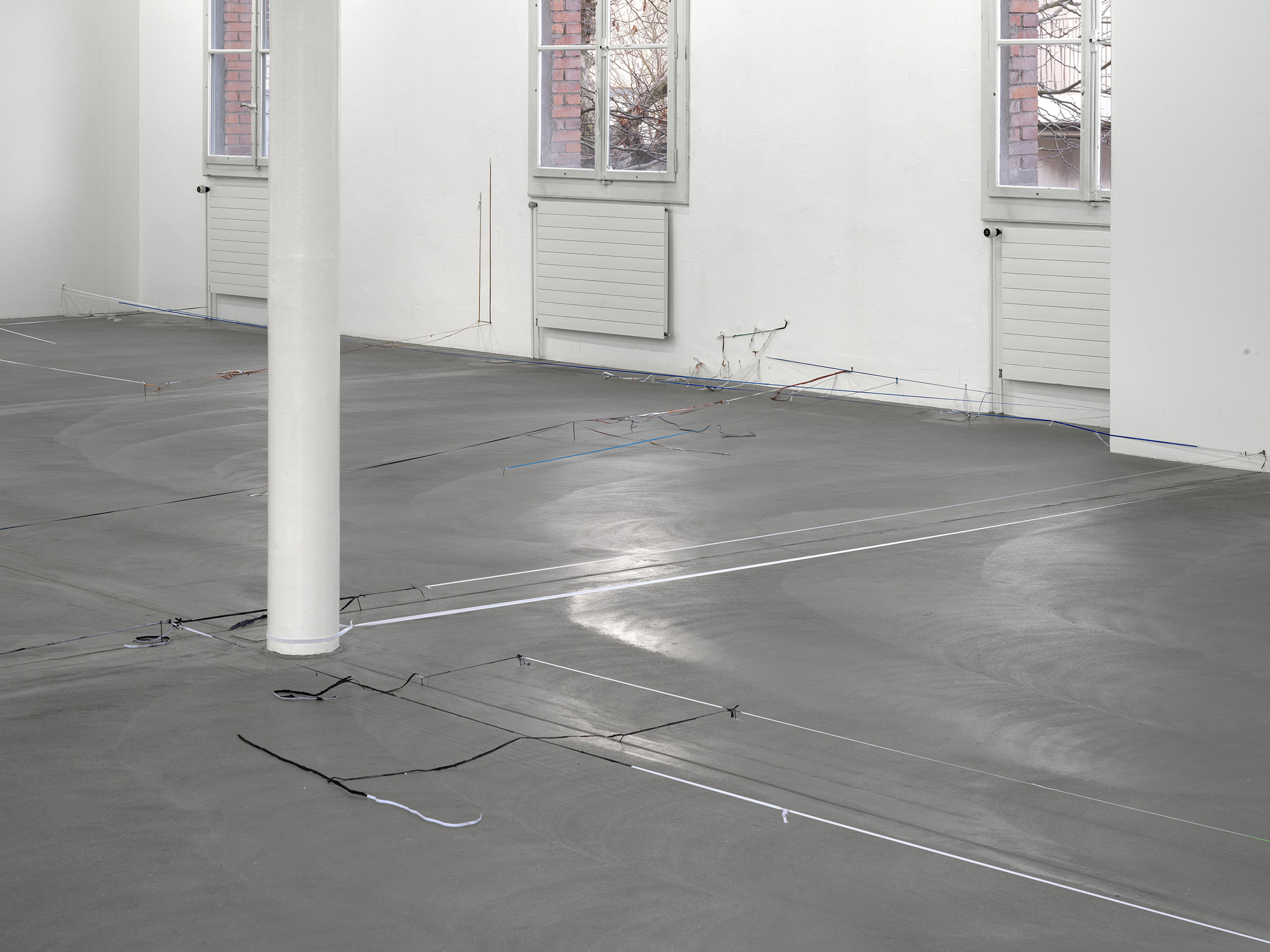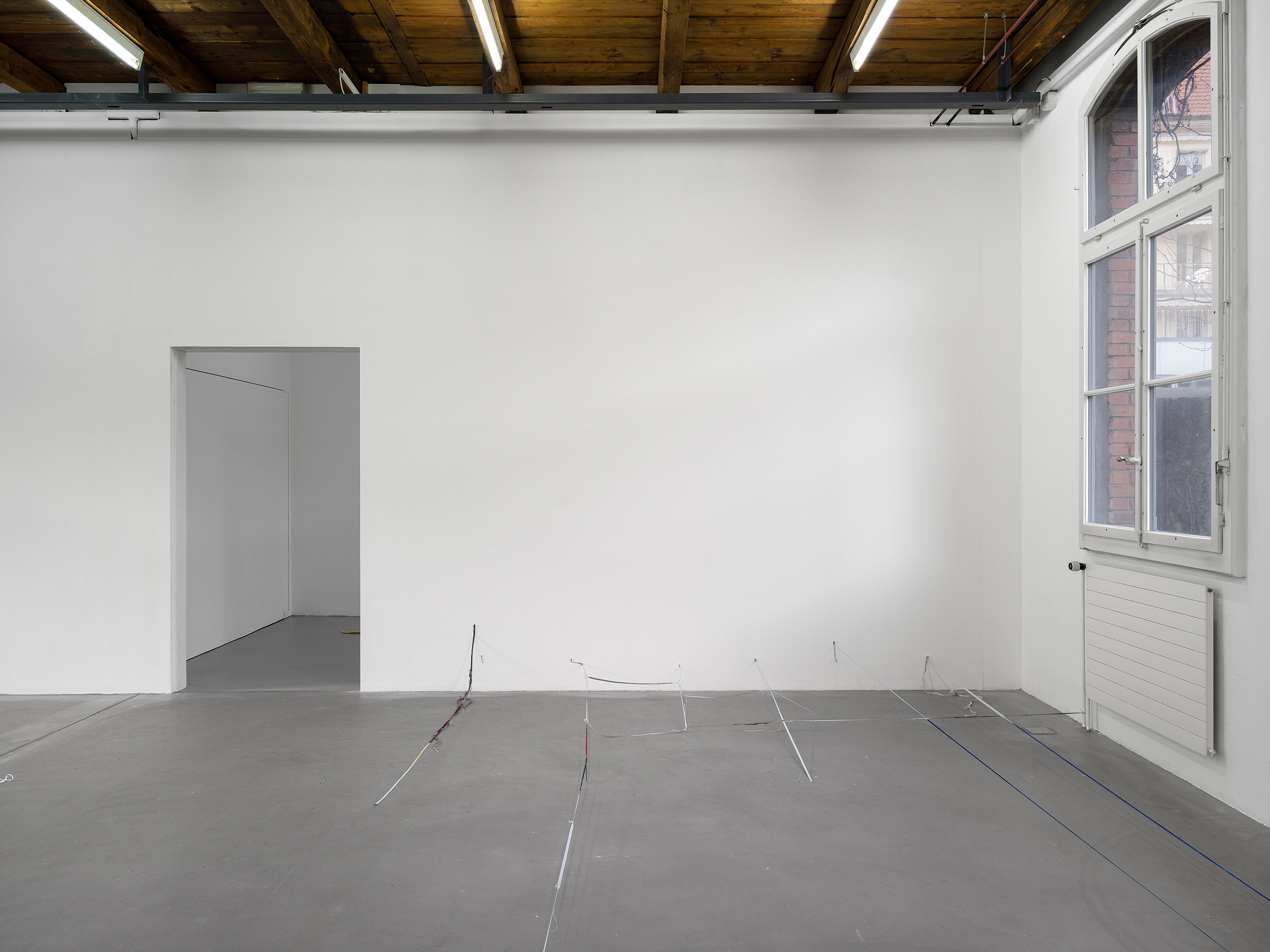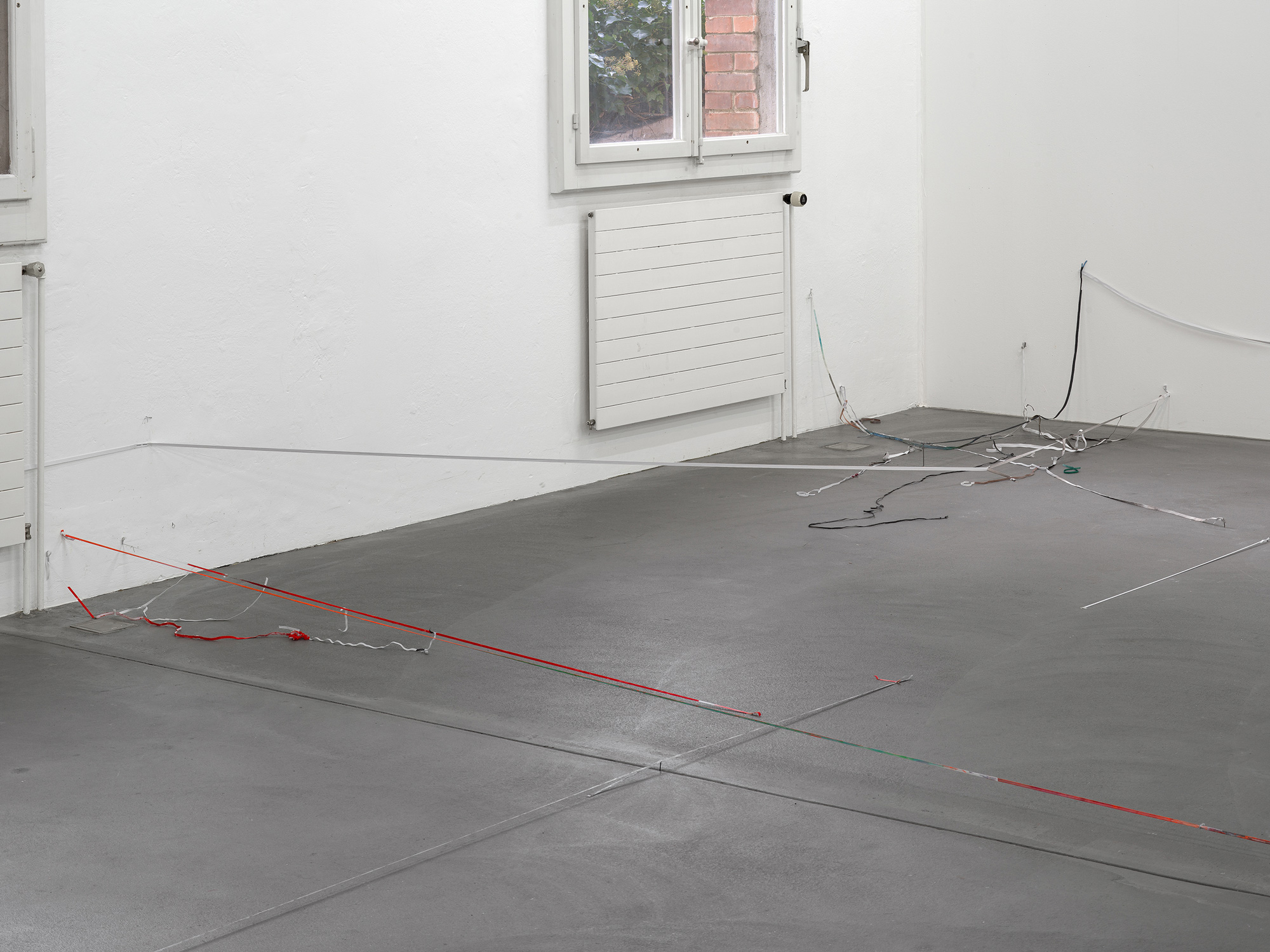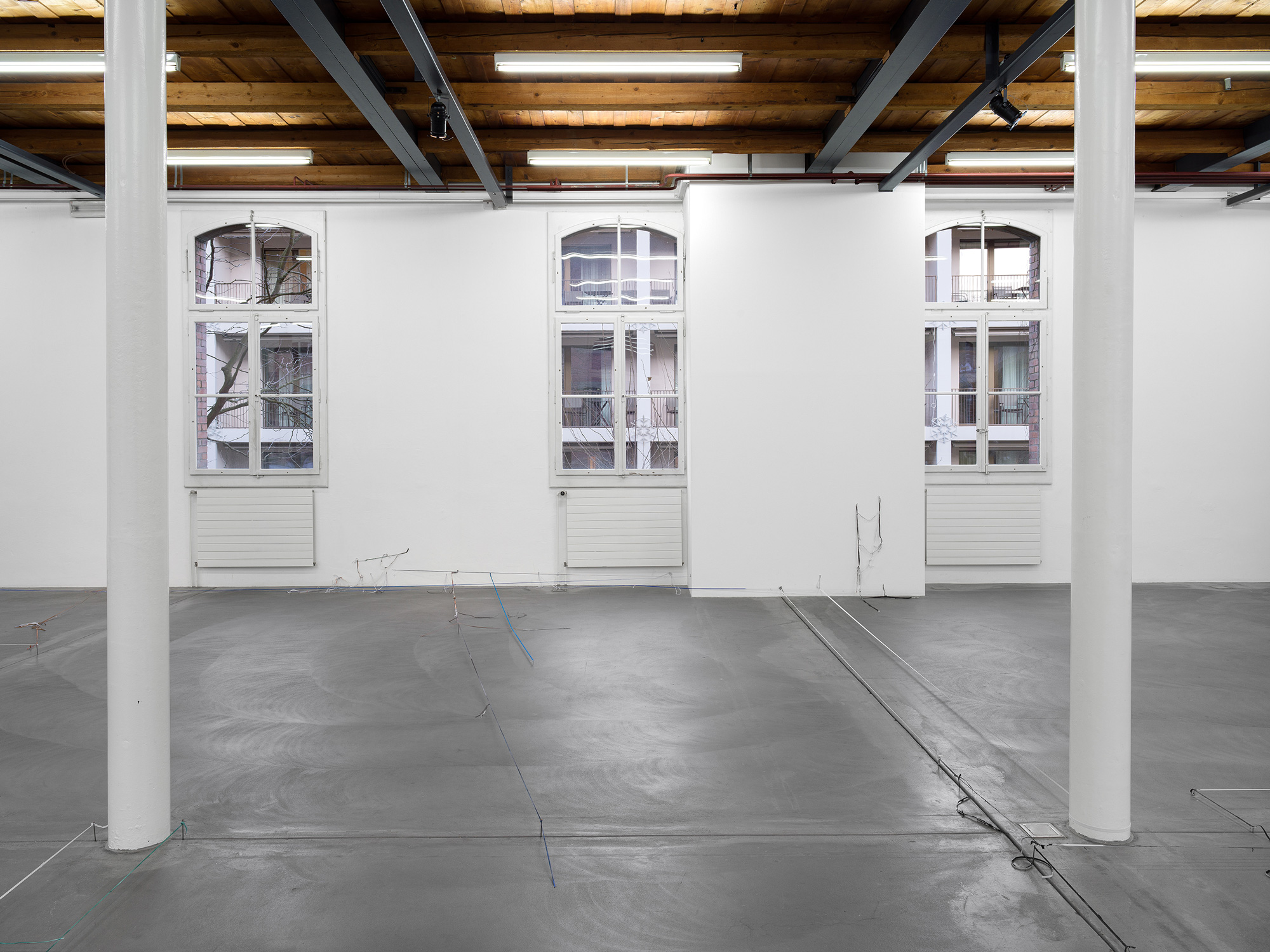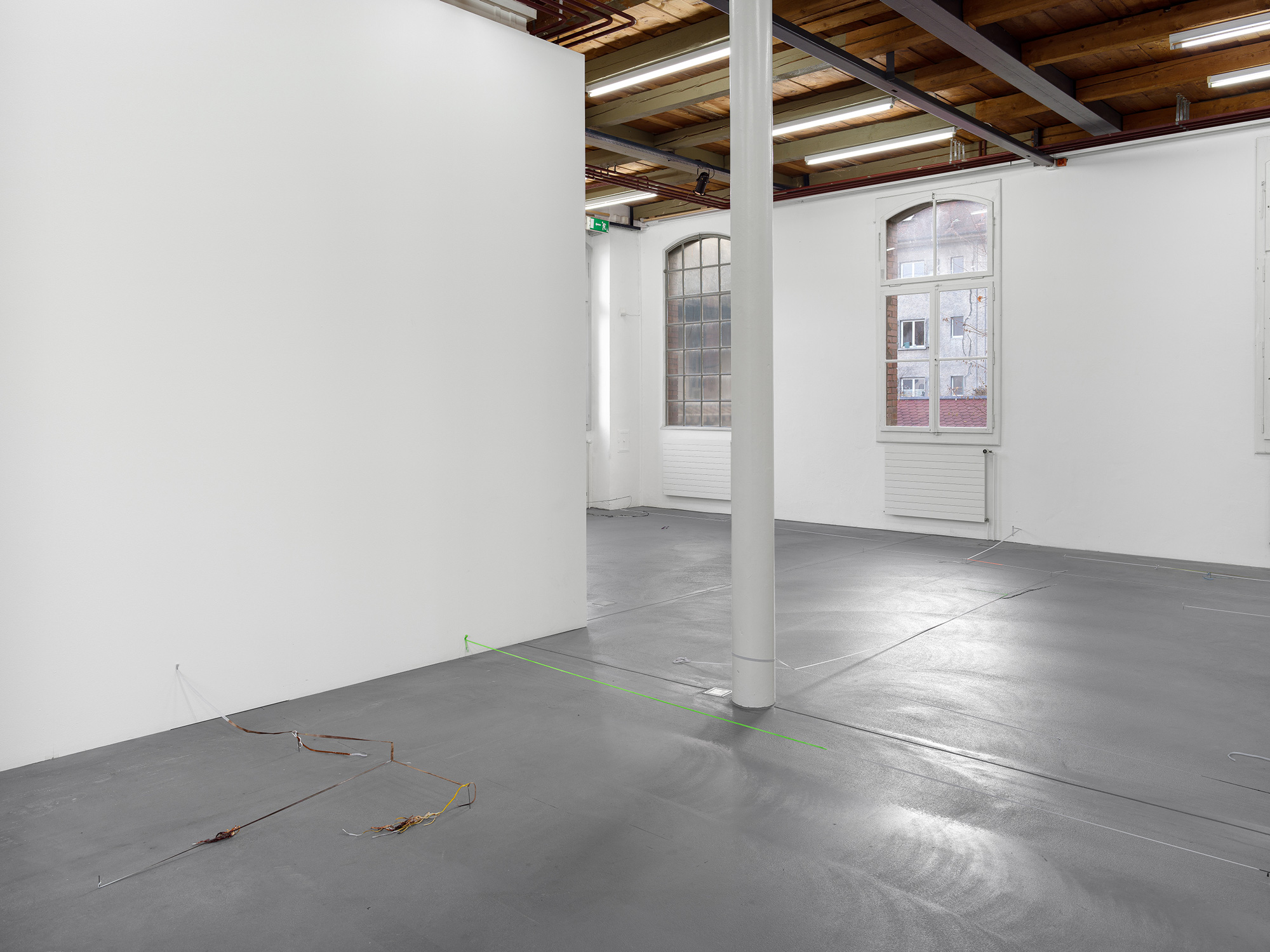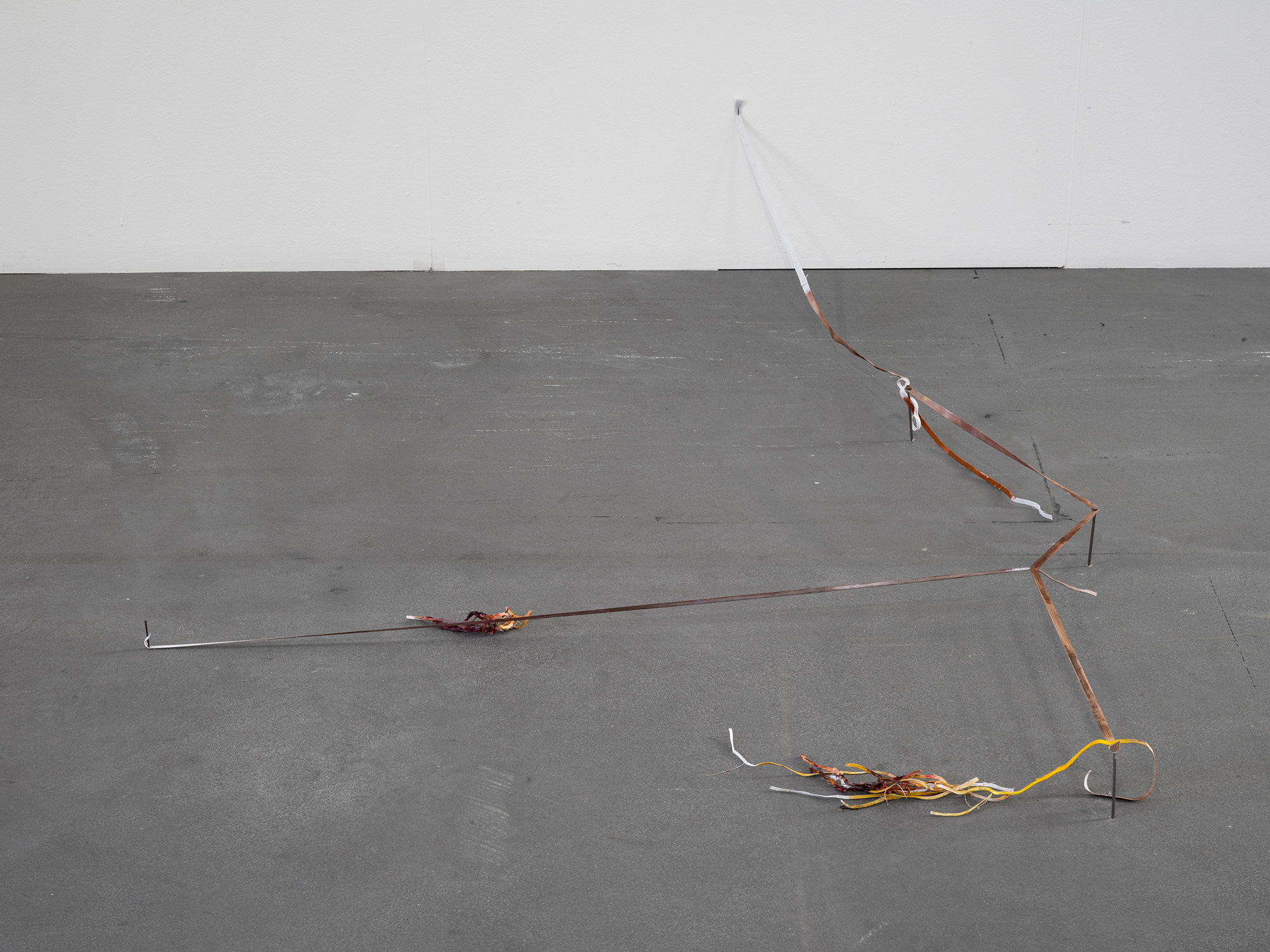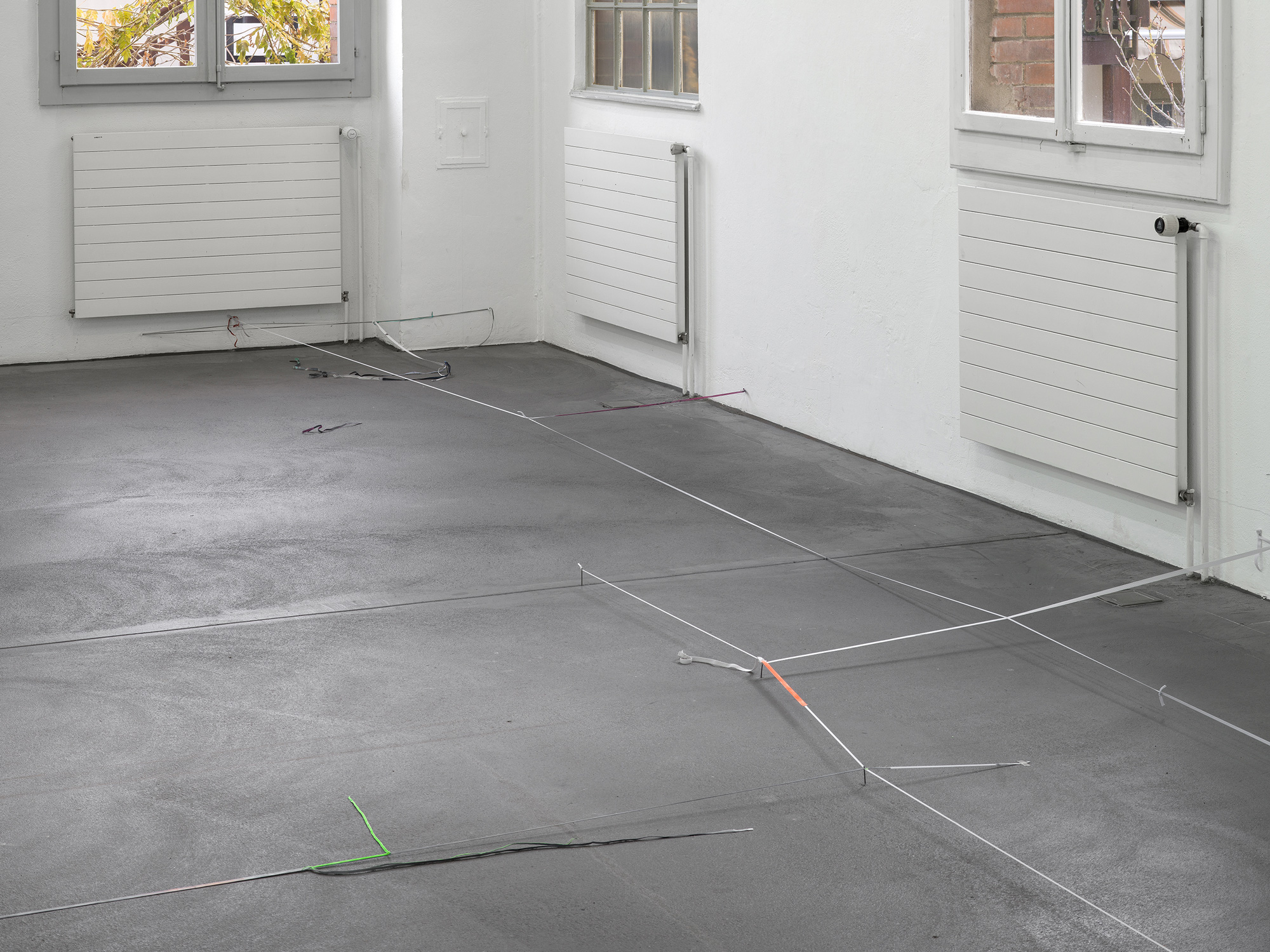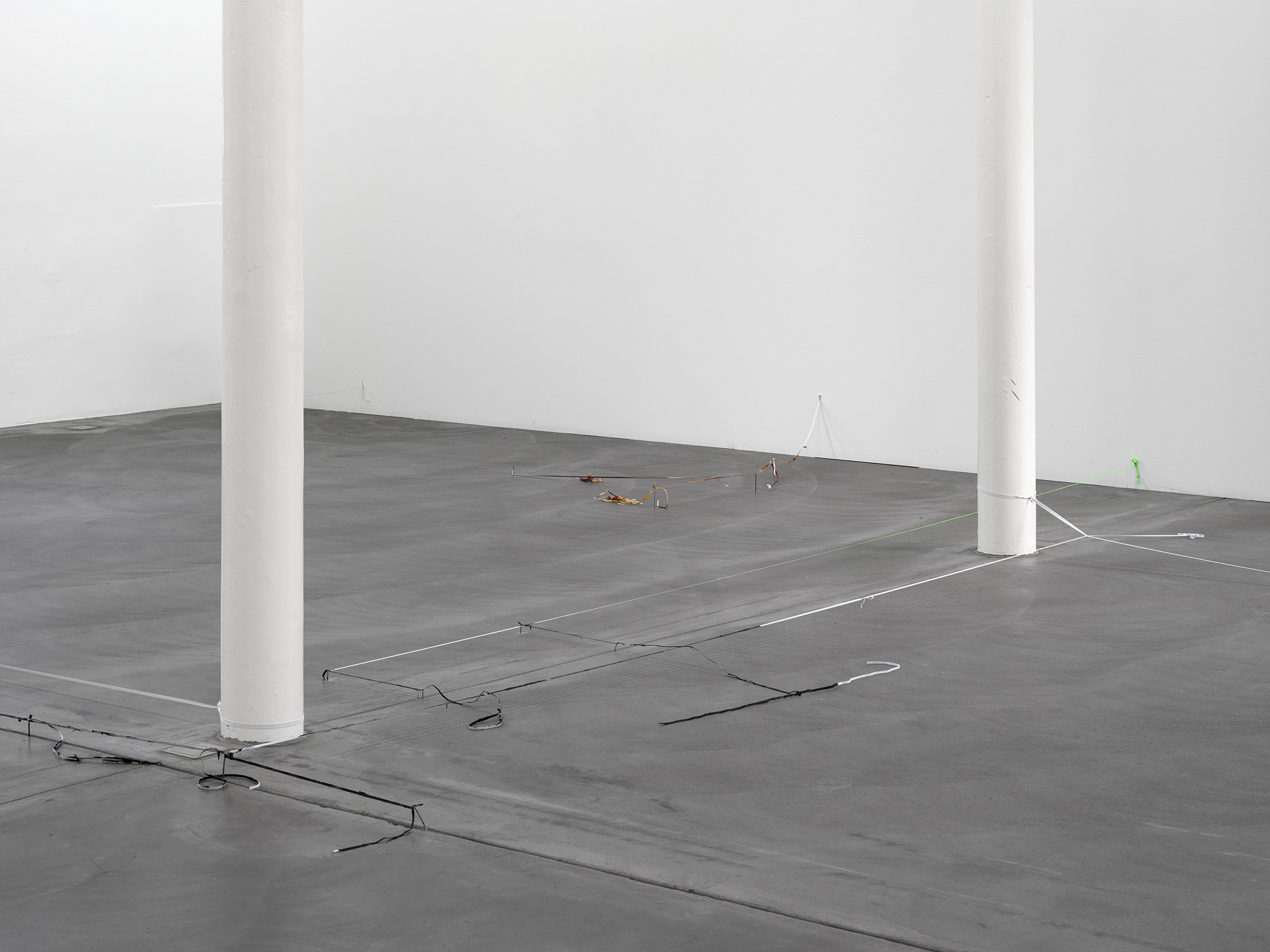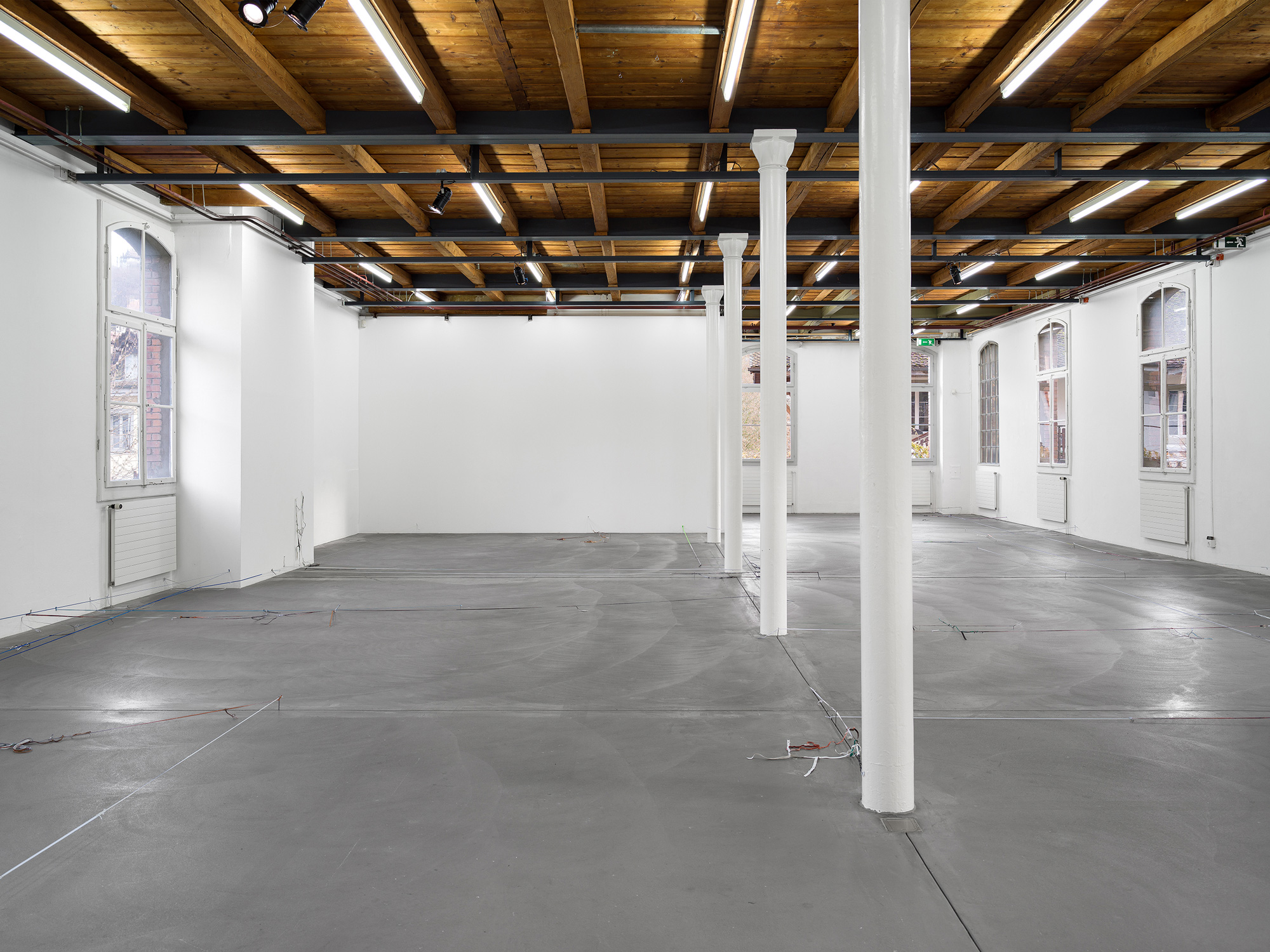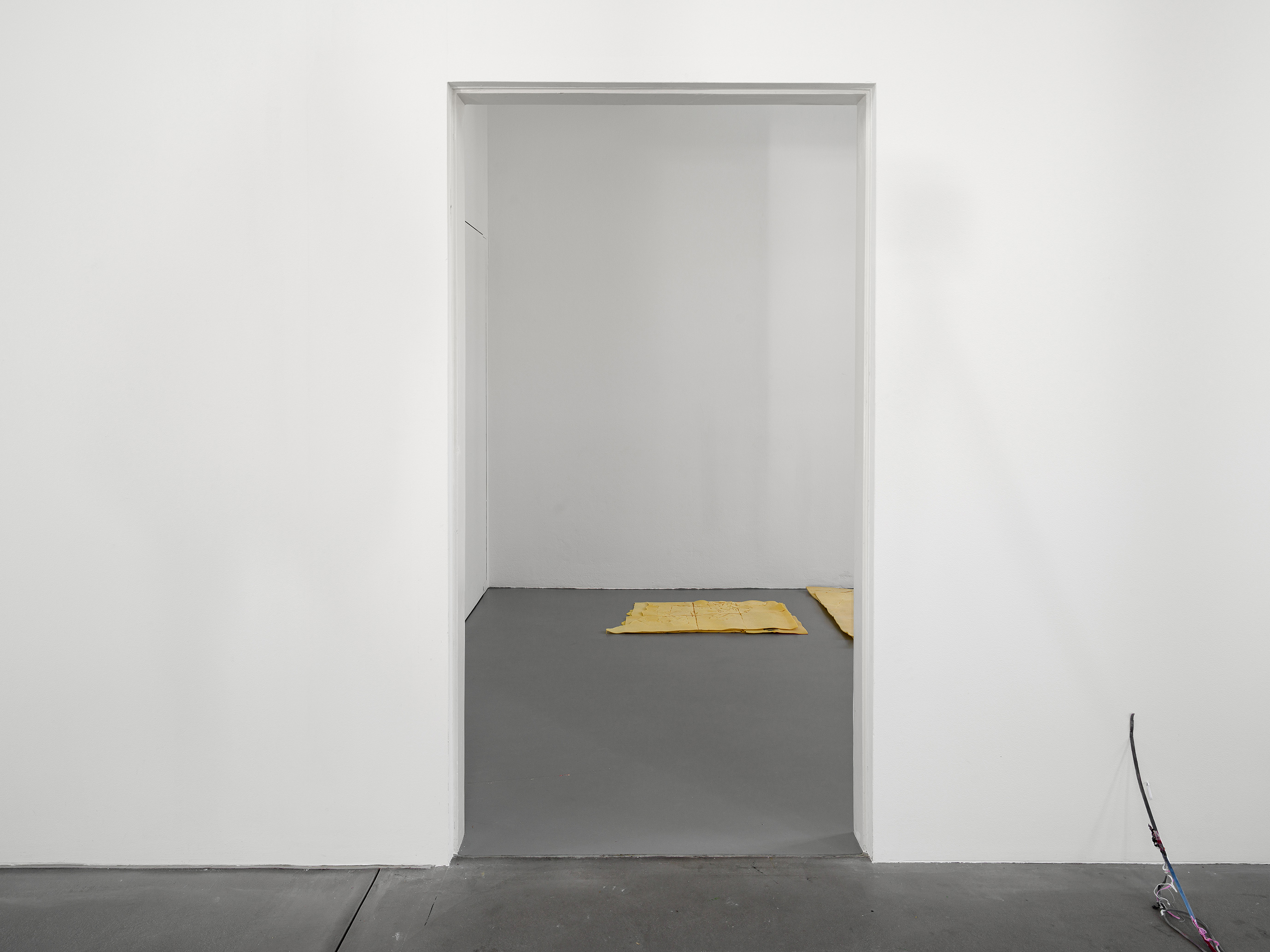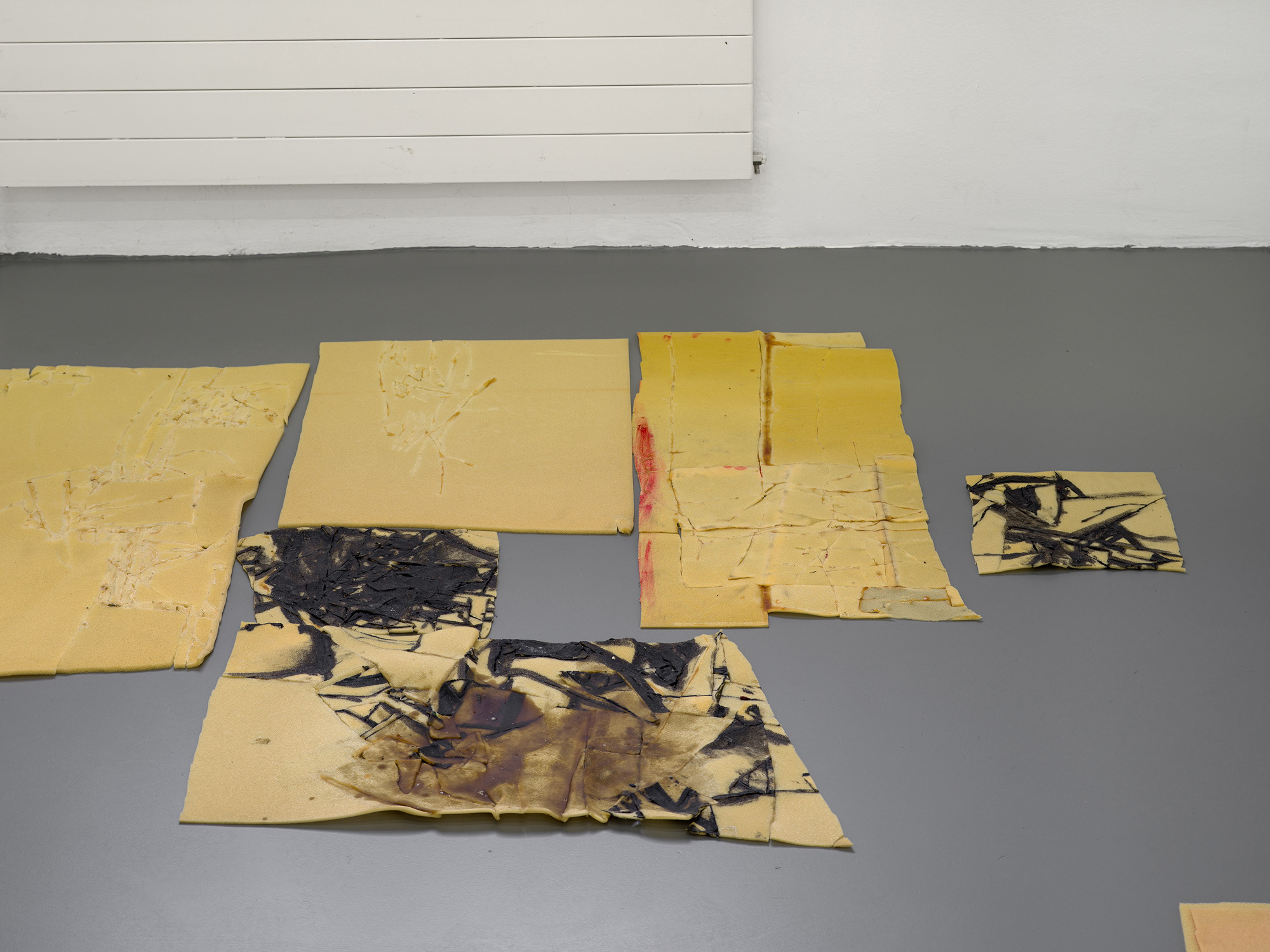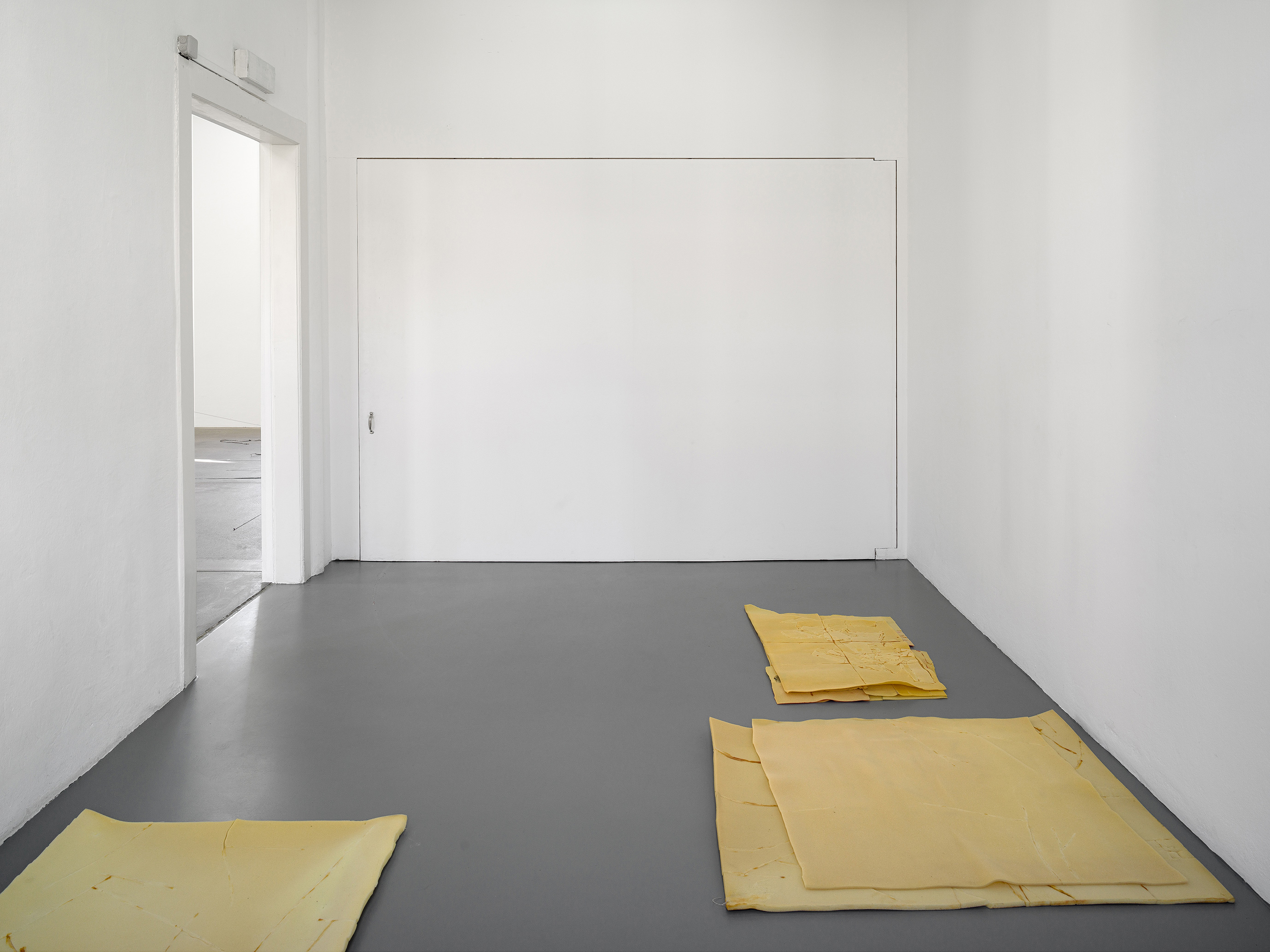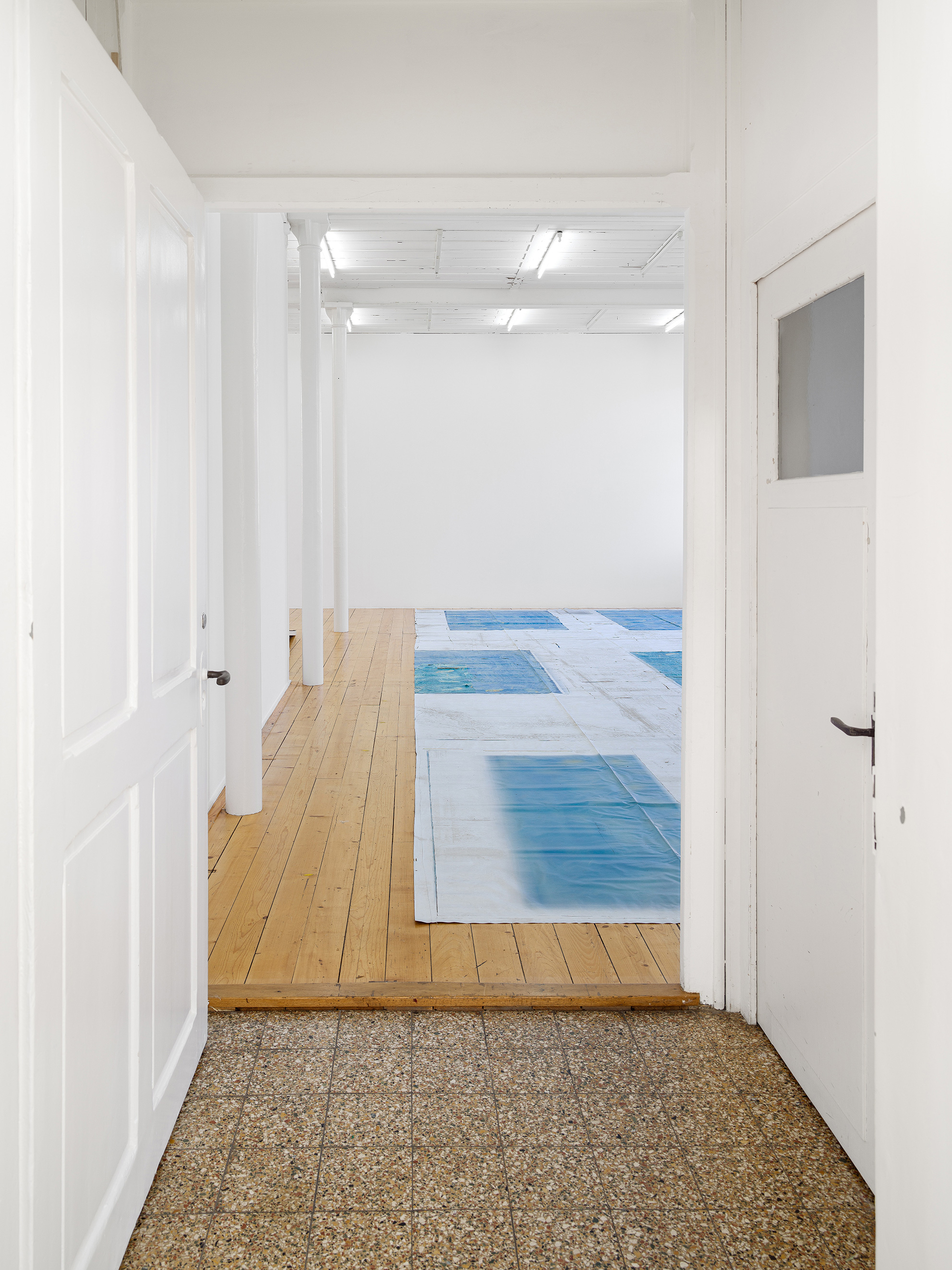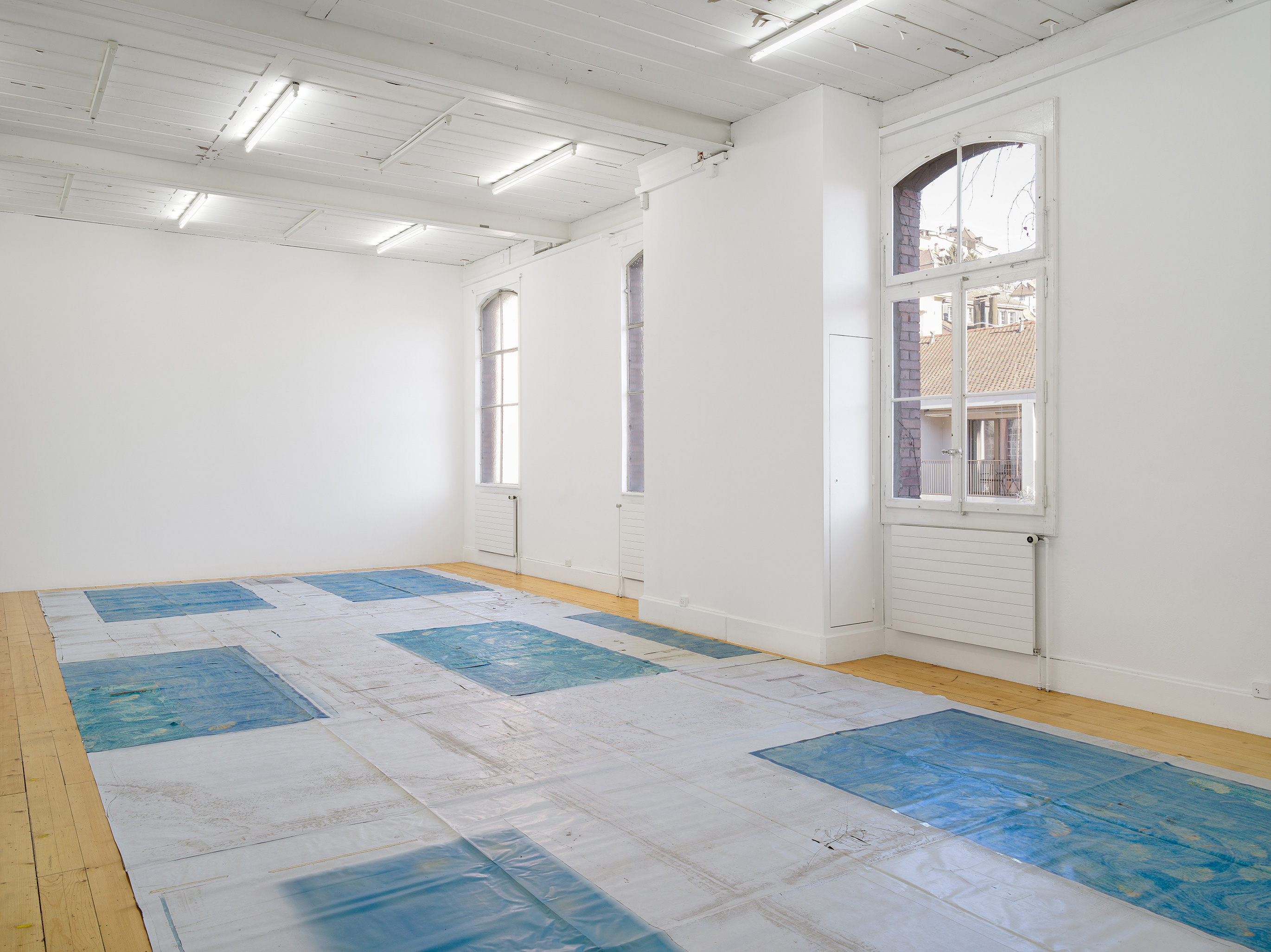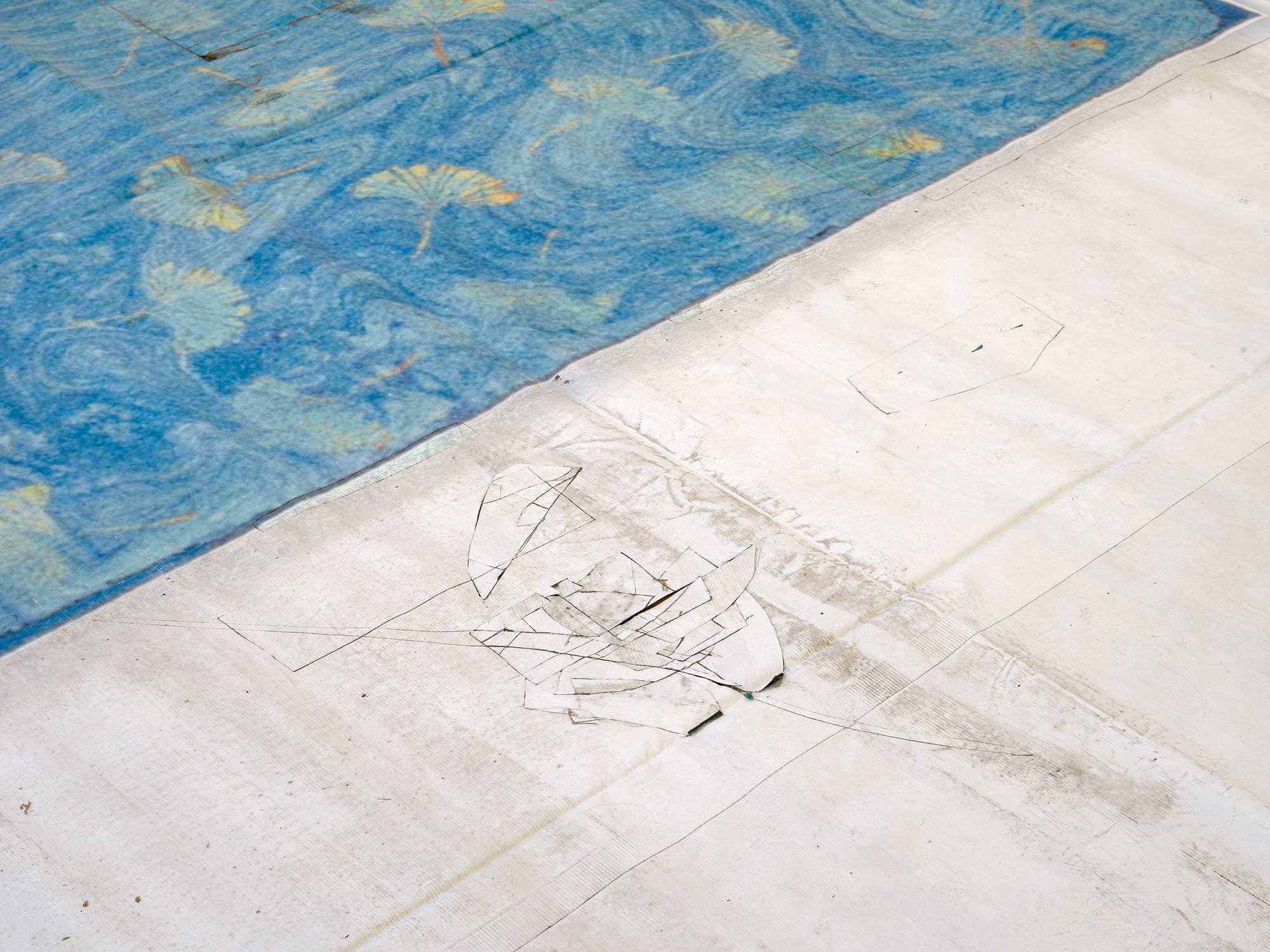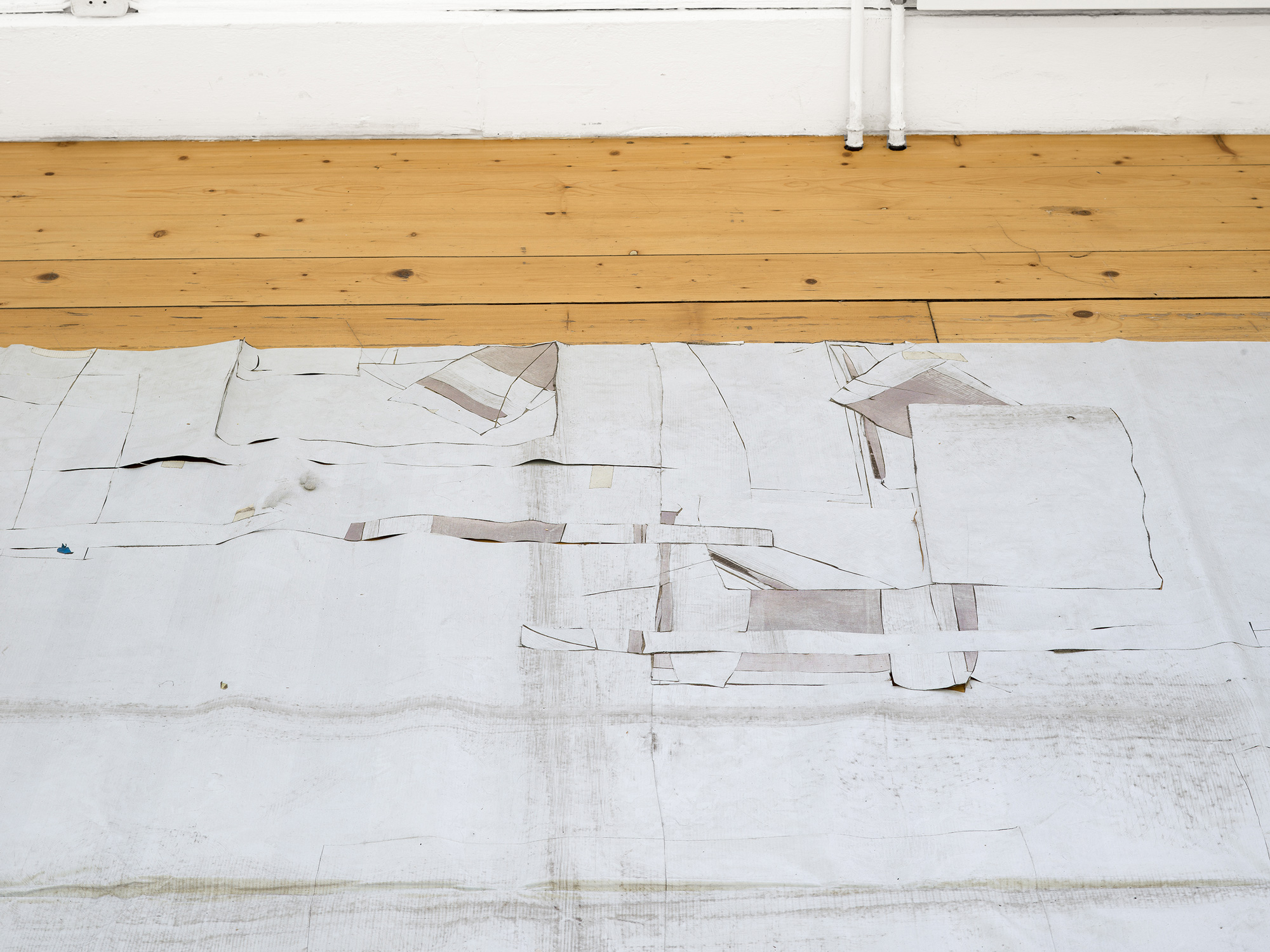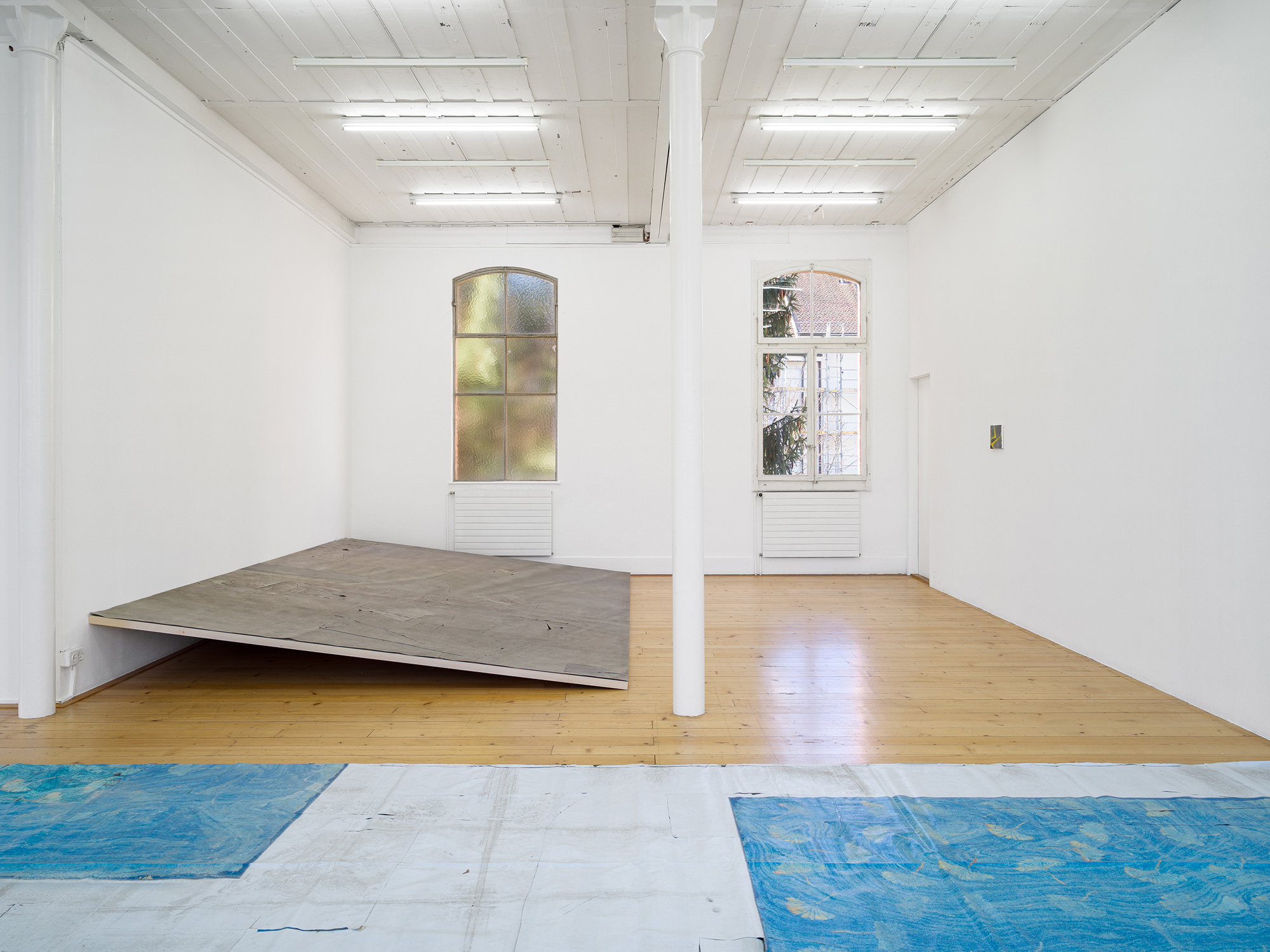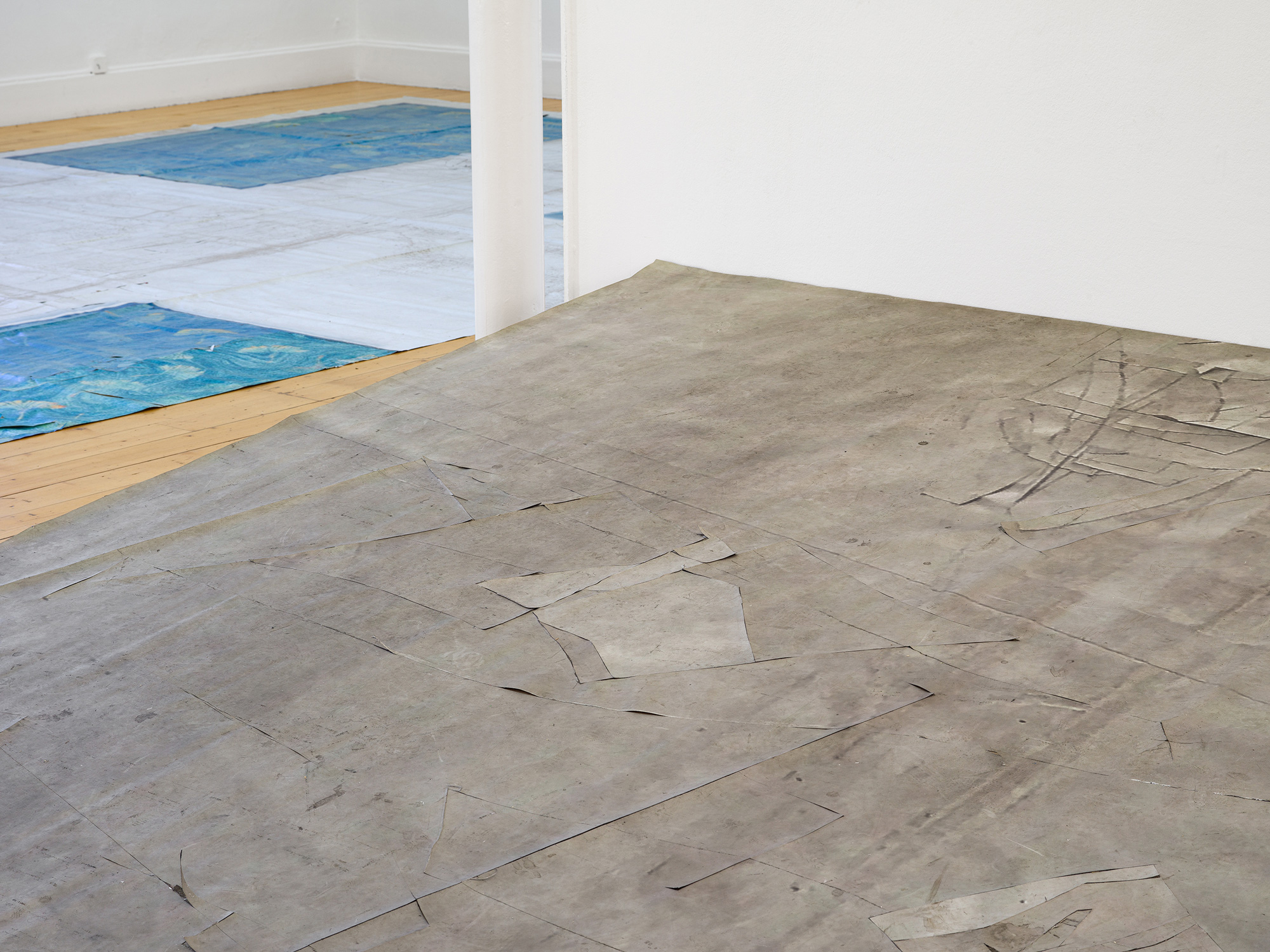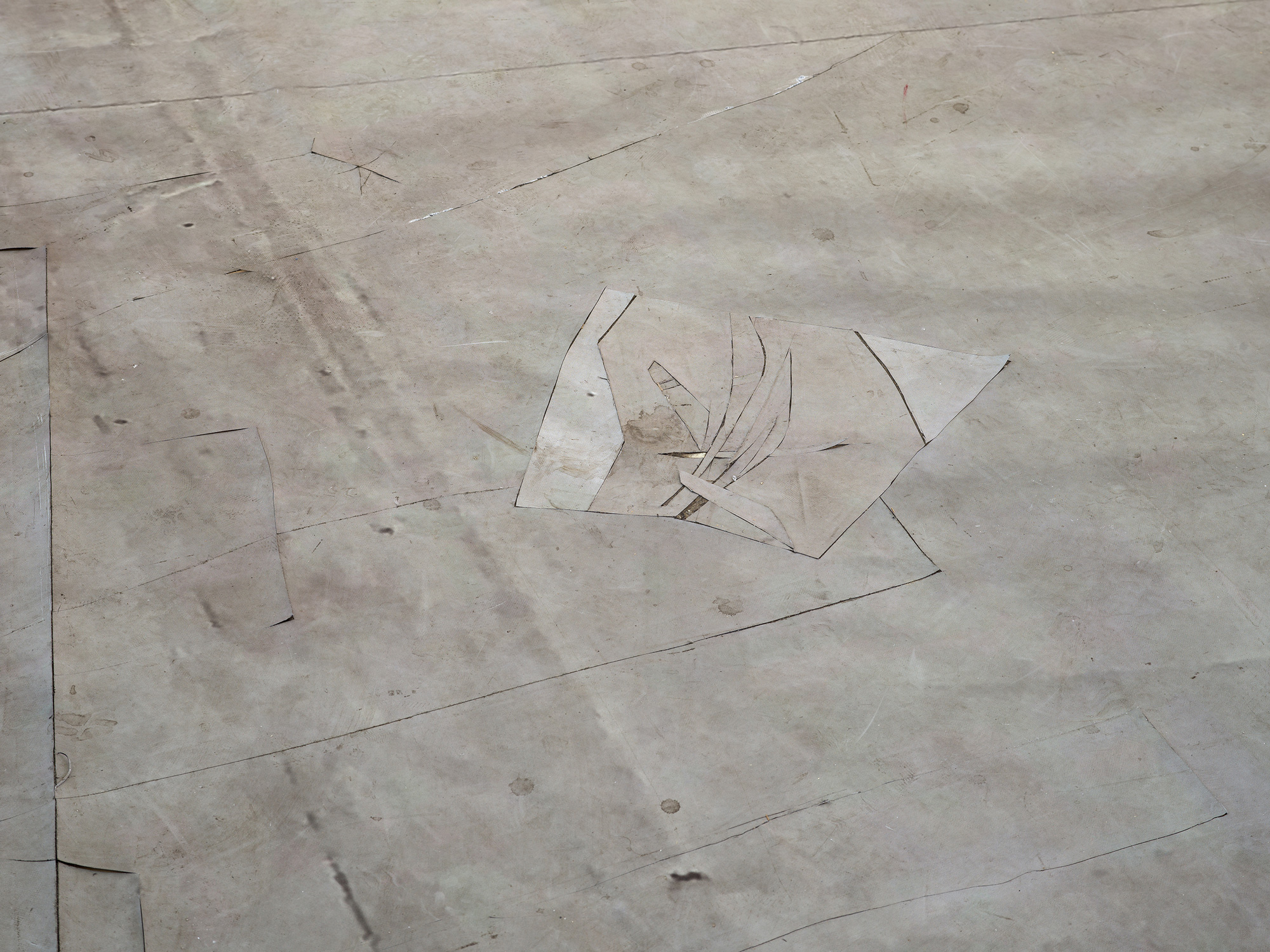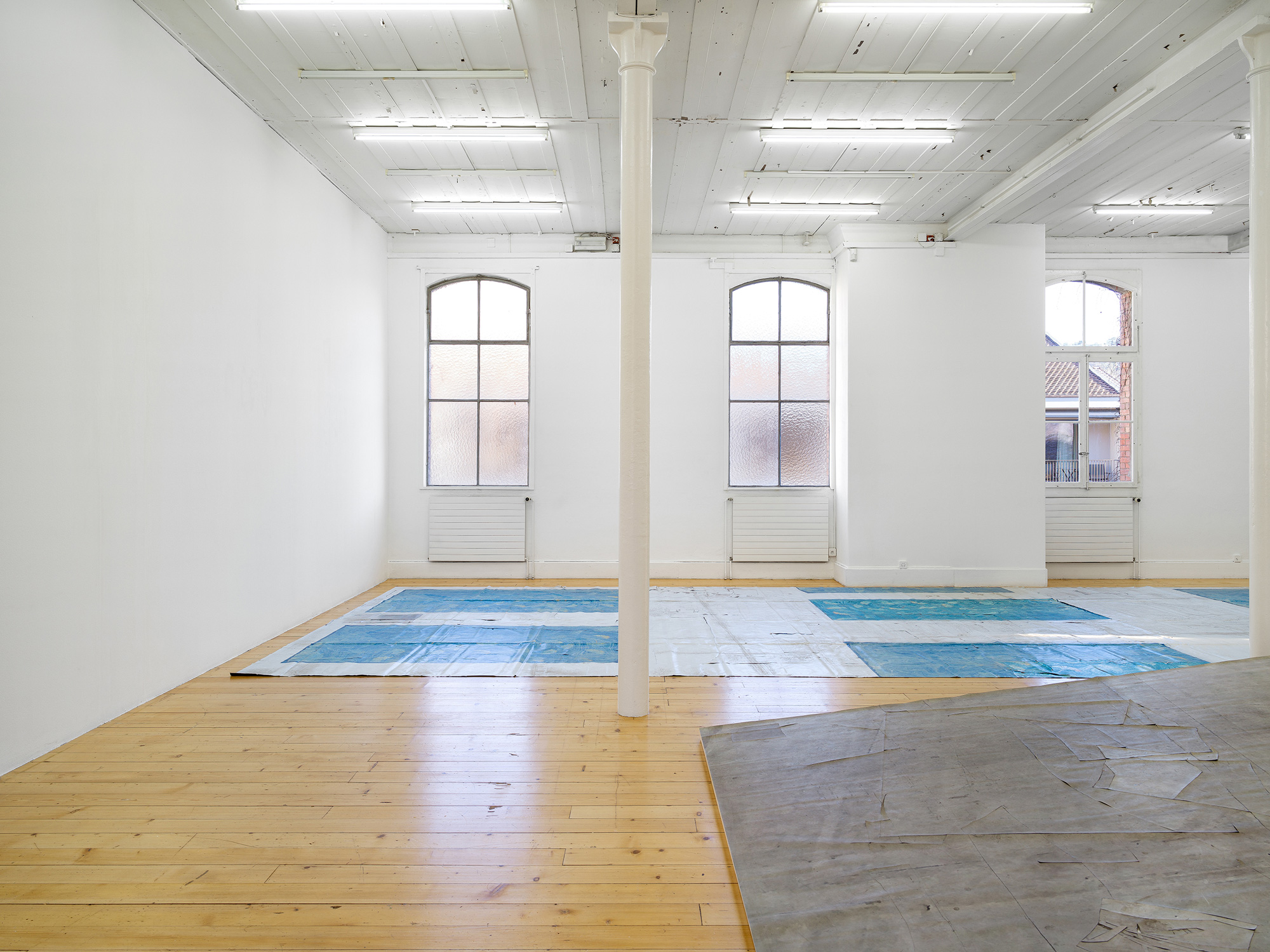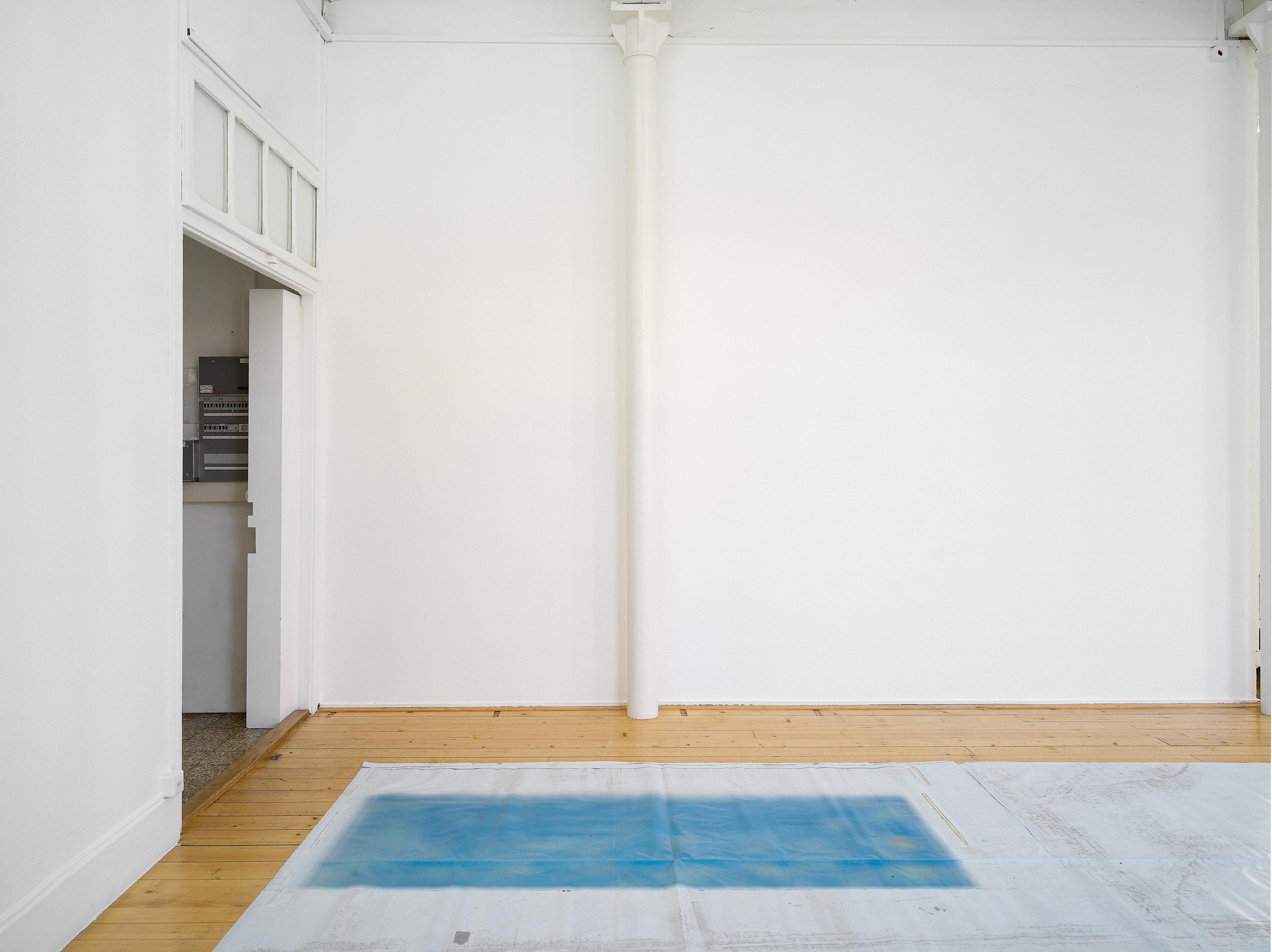Olga Balema
The bizarre space of complex numbers
Olga Balema’s work considers sculptural form as open, changeable, and processual. It emphasizes sculpture’s relatedness with external, uncontrollable factors, as well as with itself, its inner logic and temporality. Recently, Balema has sought ways for work to be created out of its own functioning, and for the possibility of something new to arise from reiteration and repetition. It is in this same spirit that The bizarre space of complex numbers, Balema’s solo exhibition at the Kunsthalle Friart Fribourg, presents itself as a sort of return of the artist to existing works, which are being reconfigured and modified on site. Occupying horizontal or slanting planes, the works seem to counteract the idea of sculptural monumentality, acting from below or from a slightly crooked position instead.
Balema’s ongoing work with elastic bands exhibits a spare materiality that causes it to almost disappear, depending on lighting conditions and background. The work is as provocative as it is sensitive, since it sees sculptural form to emerge almost out of nothing and out of a repeated gesture. Is a line sufficient to define plastic form? What becomes highly tangible here is the sense that a form can announce itself at times through lack and deficiency, perhaps more than through anything else. In all its sparseness, the work radiates a striking physical fragility: at times the elastic bands are stretched almost to the point of tearing, at others they hang down limply, seemingly exhausted and shapeless. Some form a rigid system, while others veer away, hinting at something more dysfunctional and halting, bringing to mind Balema’s repeated use of titles that reference the body’s and the psyche’s vulnerability to failure. The philosophical term “plasticity” resonates here as well: Just as the material is able to dramatically extend and adjust itself, the work itself carries an inherent adaptability.
The work Computer, consisting of hundreds of cut and recomposed fragments of a PVC banner, exhibits physical marks and heavy wear. The traces are indicative of what the work has been exposed to over time and how duration makes itself visible in physical terms – Balema carried it to a sidewalk close to her studio to perform a set of frottages on it, and footsteps are accumulating on the work over time. A repeated quotation of a rug with weathered gingko leaves afloat on blue water unfolds over its surface, creating a sense of compositional rhythm. As much as the work exhibits the effects of weathering and disintegration, it speaks of building, and of holding something more constructive against: Through repeated operations of linkage – of provisionally pasting, gluing, and sewing –, Balema arrives at something more whole, in which disparity reads as simultaneity.
There is a marked ability in Balema’s work (at least in the metaphorical sense) to create integrative, perhaps even reconciliatory sculptural form from what has disintegrated, broken, or fallen apart. Her Formulas works are made of small splinters of polyurethane foam and dyed latex. Similar to how latex adopts a dual function, of enabling intimate body contact while shielding and protecting from disease, the work speaks of a twisted simultaneity of touch and separation: latex here is both the substance that holds the splinters together and the color that emphasizes the brokenness.
The bizarre space of complex numbers refers by its title to a function in mathematics that allows things to be described in multiple states of existence. Balema’s work, as much as it is concerned with building structures, knows well about the halting, dysfunctional, and amorphous principle that exists within a world engineered for rationality.
As part of the exhibition, the Kunsthalle Friart Fribourg is inviting curator Matilde Guidelli Guidi (Dia Art Foundation, New York) and art historian Charlotte Matter (University of Basel) to give lectures on the work of Olga Balema. The symposium will take place on January 18, 2026 at 3pm.
The exhibition is curated by Kathrin Bentele, the new Artistic Director at Kunsthalle Friart Fribourg, and was initiated by Nicolas Brulhart.
Olga Balema (b. 1984 in Lviv, Ukraine) lives and works in New York.


